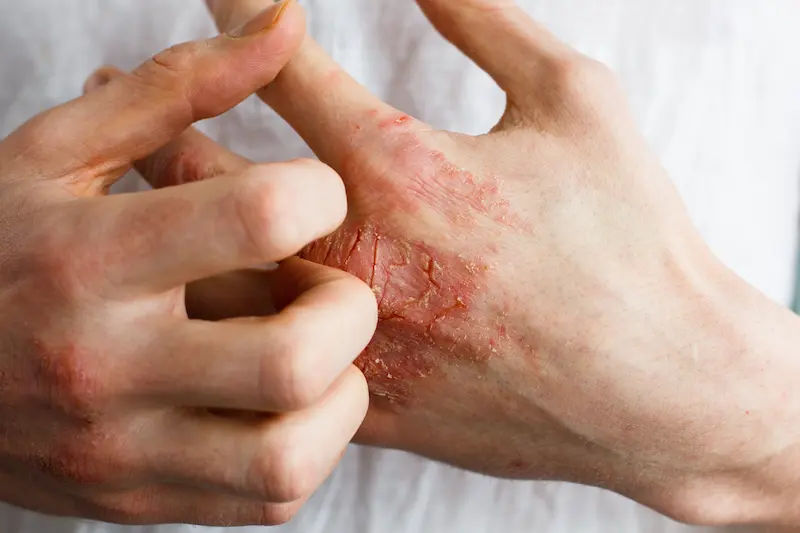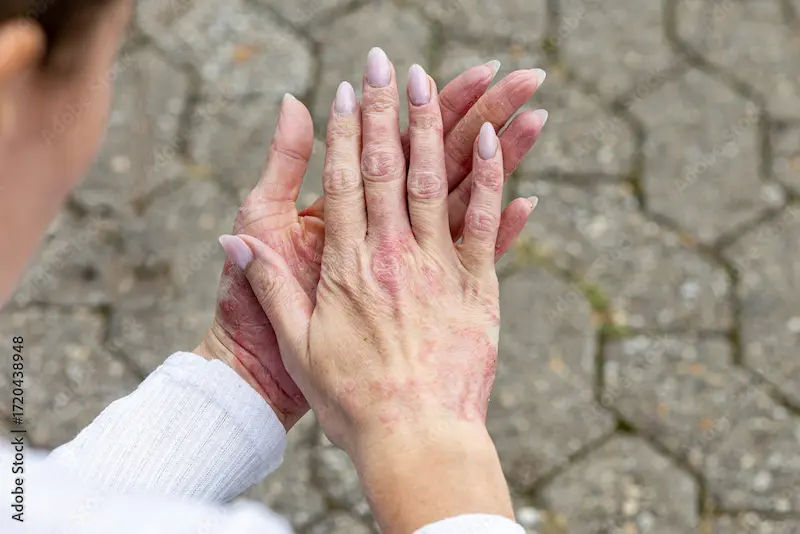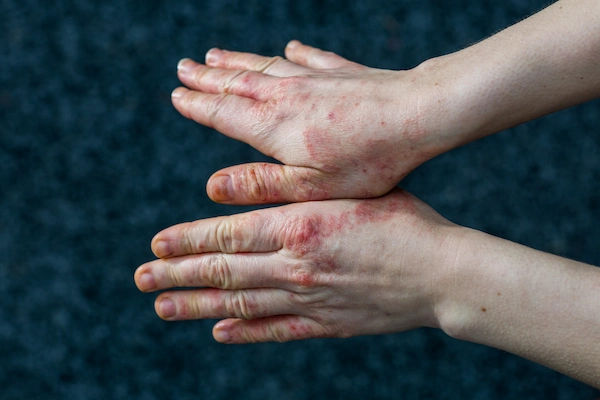Eczema and Winter Rash Management Tips
Manage eczema and winter rash effectively with our comprehensive tips. Learn to soothe dry, itchy skin, prevent flare-ups, and protect your skin barrier during colder months for lasting comfort and health.

Written by Dr. J T Hema Pratima
Reviewed by Dr. Shaik Abdul Kalam MD (Physician)
Last updated on 13th Jan, 2026

Winter can be a challenging time for people with eczema or those prone to dry, itchy skin. The cold air, low humidity, and indoor heating can strip moisture from your skin, leading to flareups of eczema or winter rashes. If you're struggling with red, itchy, or cracked skin during the colder months, don’t worry—there are ways to manage and soothe your symptoms effectively.
Understanding Eczema and Winter Rash
What is Eczema?
Eczema (also called atopic dermatitis) is a chronic skin condition that causes dry, itchy, and inflamed patches on the skin. It often appears in cycles—flaring up and then calming down. While eczema can occur at any time of the year, winter tends to make it worse due to dry air and temperature changes.
What is Winter Rash?
Winter rash refers to dry, irritated skin caused by cold weather. Unlike eczema, it’s not a chronic condition but rather a temporary reaction to harsh winter conditions. Symptoms include redness, flaking, itching, and sometimes small cracks in the skin.
Common Symptoms
If you have eczema or a winter rash, you may experience:
Dry, scaly patches
Intense itching
Redness or inflammation
Rough or thickened skin
Cracks or bleeding in severe cases
Why Does Winter Worsen Eczema and Skin Issues?
Several factors contribute to skin problems in winter:
1. Low Humidity – Cold air holds less moisture, drying out your skin.
2. Hot Showers – Long, hot showers strip natural oils from your skin.
3. Indoor Heating – Artificial heat reduces indoor humidity, further drying the skin.
4. Wool and Synthetic Fabrics – Rough or nonbreathable clothing can irritate sensitive skin.
Consult Top Dermatologist
Tips to Manage Eczema and Winter Rash
Tips to manage eczema and winter rash are:
1. Moisturize Regularly
Use a thick, fragrancefree moisturizer (like creams or ointments) right after bathing.
Look for ingredients like ceramides, hyaluronic acid, or shea butter.
Reapply moisturizer throughout the day, especially on exposed areas like hands and face.
2. Avoid Hot Showers
Use lukewarm water instead of hot water.
Limit showers to 5-10 minutes.
Gently pat dry with a soft towel—don’t rub harshly.
3. Choose SkinFriendly Soaps
Use mild, fragrancefree cleansers instead of harsh soaps.
Avoid products with alcohol, sulfates, or strong fragrances.
4. Wear Soft, Breathable Fabrics
Opt for cotton or bamboo clothing instead of wool or synthetic fabrics.
Layer clothing to avoid overheating, which can trigger itching.
5. Use a Humidifier
A cool mist humidifier adds moisture to dry indoor air, helping prevent skin dehydration.
6. Stay Hydrated
Drink plenty of water to keep your skin hydrated from within.
Eat foods rich in omega-3 fatty acids (like fish, flaxseeds, and walnuts) to support skin health.
7. Avoid Scratching
Scratching worsens irritation and can lead to infections.
Keep nails short and wear gloves at night if you scratch in your sleep.
Apply a cold compress to itchy areas for relief.
8. Protect Your Skin Outdoors
Wear gloves and scarves to shield skin from cold winds.
Apply a petroleum-based balm (like Vaseline) on lips and exposed areas.
9. Manage Stress
Stress can trigger eczema flareups. Practice relaxation techniques like deep breathing, yoga, or meditation.
10. Consult a Dermatologist if Needed
If your symptoms persist or worsen, a dermatologist may recommend:
Prescription creams (steroid or nonsteroid)
Antihistamines for severe itching
Wet wrap therapy for intense flareups
When to See a Doctor?
Seek medical advice if you experience:
Severe cracking or bleeding
Signs of infection (pus, swelling, fever)
No improvement with home care
Final Thoughts
Winter doesn’t have to mean constant discomfort for your skin. With the right care—gentle cleansing, frequent moisturizing, and protecting your skin from harsh weather—you can keep eczema and winter rashes under control.
If you need personalized advice, consider booking a consultation with a dermatologist through Apollo 24|7. Early care can prevent complications and help you enjoy healthier skin all winter long!
Stay moisturized, stay comfortable, and take care of your skin—it deserves the best!
Consult Top Dermatologist
Consult Top Dermatologist

Dr. S Madhuri
Dermatologist
10 Years • MBBS, MD. DVL, DNB, Fellow (Dermatosurgery & Lasers)
Secunderabad
Apollo Hospitals Secunderabad, Secunderabad
(350+ Patients)

Dr. Sonal Jain
Dermatologist
9 Years • MBBS, MD Dermatology, Venerology & Leprosy
Kolkata
MCR SUPER SPECIALITY POLY CLINIC & PATHOLOGY, Kolkata
(25+ Patients)

Dr. Shilpa Nikam
Dermatologist
8 Years • MBBS, DDVL, PGDMC
Bengaluru
A1 AESTHETIC Skin and Hair Clinic, Bengaluru
(25+ Patients)

Dr. Snuhi Bhuiya
Dermatologist
7 Years • MBBS,MD(Dermatology venereology and leprosy)
Kolkata
Dr Snuhi Bhuiya Clinic, Kolkata

Dr. Sushil Singh
Dermatologist
6 Years • MBBS, MD Dermatology, Venerology & Leprosy
Kolkata
MCR SUPER SPECIALITY POLY CLINIC & PATHOLOGY, Kolkata




